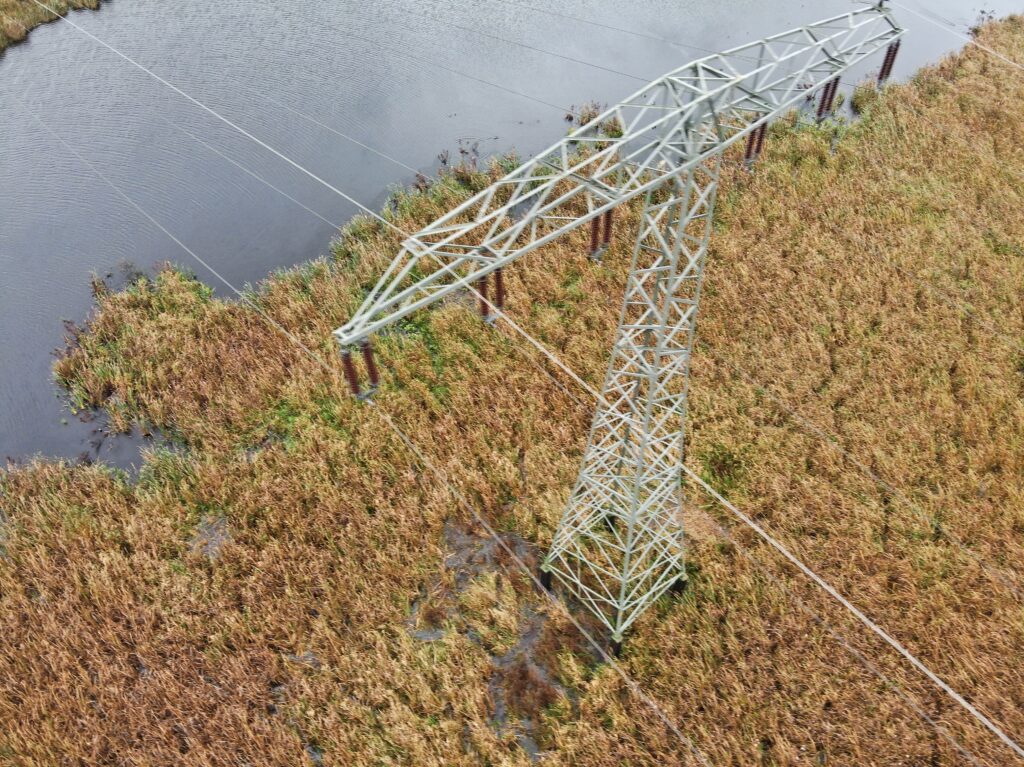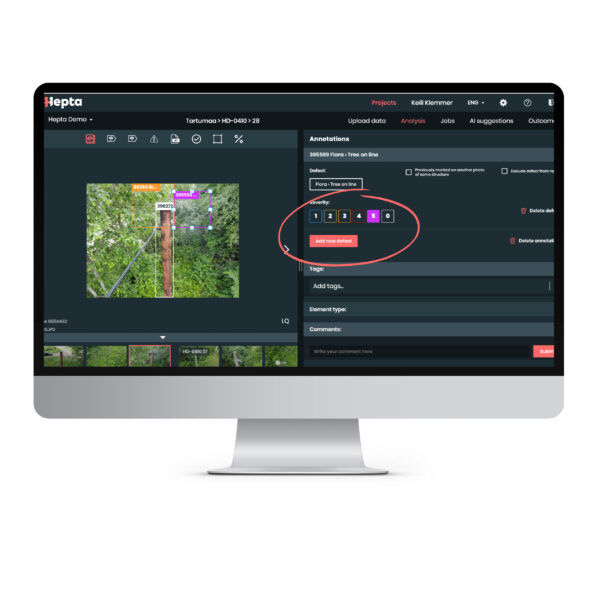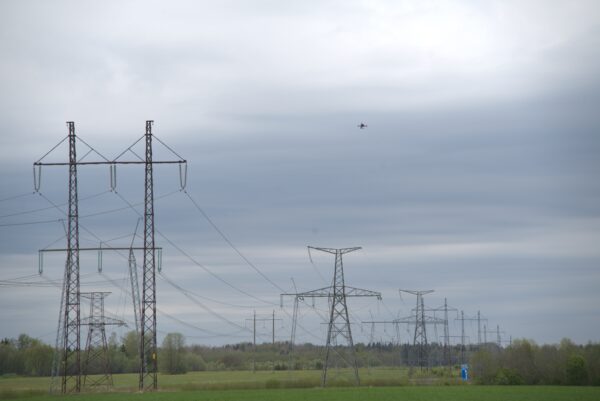E.DIS Netz, a subsidiary of one the largest energy service providers in Germany, the E.DIS Group, recently finished testing novel drone-based inspection solutions in the state of Mecklenburg-Vorpommern. The tests were conducted as part of a larger program for E.DIS Netz, which aims to evaluate how drones can be used in power line inspections.

Power line crossing a moor near Demmin
The tests were conducted mostly in agricultural areas, where the landscape is quite varied with different fields with high vegetation, groves, moors and rivers. These natural obstacles limit both the speed and efficiency of traditional on-foot inspection patrols. Agricultural lands create additional challenges, as inspectors try to avoid crossing farmers crop fields as much as possible. But drones are unaffected by the landscape, allowing the power line inspectors to gather more information in less time. Instead of trying to cross a moor in a small boat or climbing through thick vegetation, inspectors fly drones over the power lines, collecting needed data quickly and easily. In the case of high voltage power lines, such as the ones that were inspected in Mecklenburg-Vorpommern, it often takes a two-man team of inspectors a lot of time to inspect and climb the power pole. Meanwhile, a drone can gather needed data of the whole pole in 15 minutes.
In addition to drones, E.DIS Netz also tested a specialized power line inspection platform called Hepta Insights, that allows for faster defect detection. It combines all of the collected data into a map-based overview, where it can be inspected either manually or by employing machine learning algorithms. This allows network operators to have up to 250% faster inspection cycles, which in turn allows them to detect and fix possible hazards earlier before they start affecting the power supply. The Insights platform was provided by Hepta, one of the leaders in drone-based inspection solutions.
E.DIS Netz has been actively testing drone technology since summer when it created the first drone inspection teams. Today they have 15 DJI Mavic 2 drones in use with their inspection teams but are not done yet. “Our main goal is to find out the areas and operations for what the drones are perfect for. We want to make sure our inspectors have the right tools and equipment to conduct effective operations, wherever they might be” commented Florian Lorenz, who is heading the drone program in E.DIS Netz. “During the latest tests, we focused on comparing the performance of different sized drones and how we can use the collected data in Hepta Insights. While more tests are needed to make decisions on the drones, we were pleased with the level of detail and great overview we got from Insights” added Lorenz.
While the use of drones and inspection software by network operators has been growing rapidly over the years, E.DIS Netz has still managed to stand out with its scale of testing and drone program. “The amount of effort they have put in to find the best solutions has been impressive. It is rare to see companies conduct tests of this magnitude. But we believe that the experience and knowledge gained from this will enable them to achieve great results going forward. We will be definitely rooting for them and look forward to breaking new ground together” commented Hepta’s head of operations, Eduard Vainu.
About E.DIS Netz:
E.DIS Netz GmbH is one of the largest regional energy network operators in Germany and operates a 79,000-kilometer power line network in Brandenburg and Mecklenburg-Western Pomerania on an area of 35,500 square kilometres. In addition, there is an approx. 4,700 km long gas pipeline network in the eastern part of Mecklenburg-Western Pomerania and in the north of Brandenburg on an area of 9,770 square kilometres.
About Hepta:
Hepta is an Estonian technology company, that automates the analysis of power lines by utilizing drones and big data analysis. Hepta’s software platform Insights helps to find defects and potential risks to prevent future failures and save costs. Hepta provides grid inspection services for DSOs and TSOs, railway, and communication companies in 11 countries, including Germany, Portugal, Chile, and Ukraine. Today, Hepta has been trusted to analyse over 3000+km of power lines per month.


